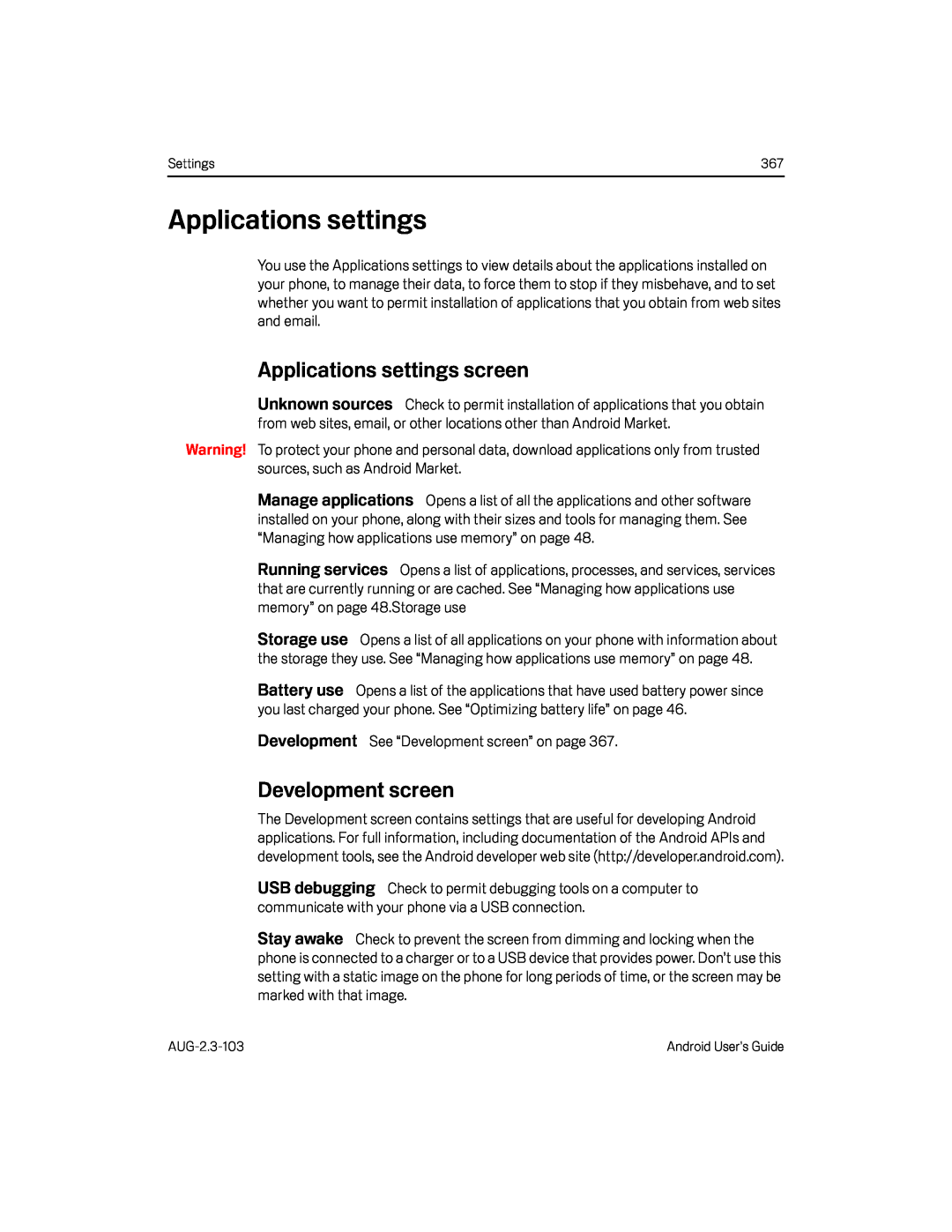Settings | 367 |
Applications settings
You use the Applications settings to view details about the applications installed on your phone, to manage their data, to force them to stop if they misbehave, and to set whether you want to permit installation of applications that you obtain from web sites and email.
Applications settings screen
Unknown sources Check to permit installation of applications that you obtain from web sites, email, or other locations other than Android Market.
Warning! To protect your phone and personal data, download applications only from trusted sources, such as Android Market.
Manage applications Opens a list of all the applications and other software installed on your phone, along with their sizes and tools for managing them. See “Managing how applications use memory” on page 48.
Running services Opens a list of applications, processes, and services, services that are currently running or are cached. See “Managing how applications use memory” on page 48.Storage use
Storage use Opens a list of all applications on your phone with information about the storage they use. See “Managing how applications use memory” on page 48.
Battery use Opens a list of the applications that have used battery power since you last charged your phone. See “Optimizing battery life” on page 46.
Development See “Development screen” on page 367.
Development screen
The Development screen contains settings that are useful for developing Android applications. For full information, including documentation of the Android APIs and development tools, see the Android developer web site (http://developer.android.com).
USB debugging Check to permit debugging tools on a computer to communicate with your phone via a USB connection.
Stay awake Check to prevent the screen from dimming and locking when the phone is connected to a charger or to a USB device that provides power. Don’t use this setting with a static image on the phone for long periods of time, or the screen may be marked with that image.
Android User’s Guide |
